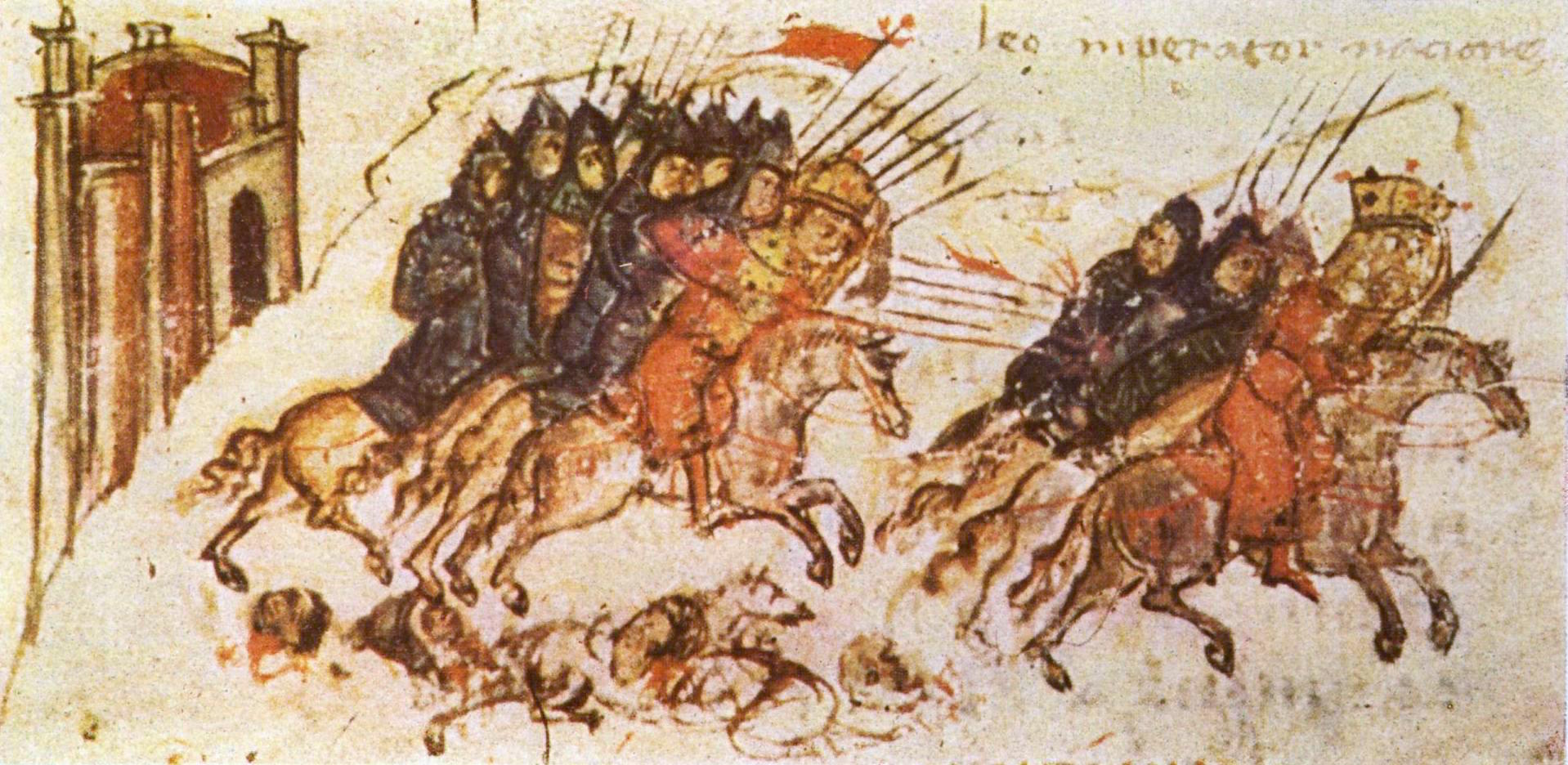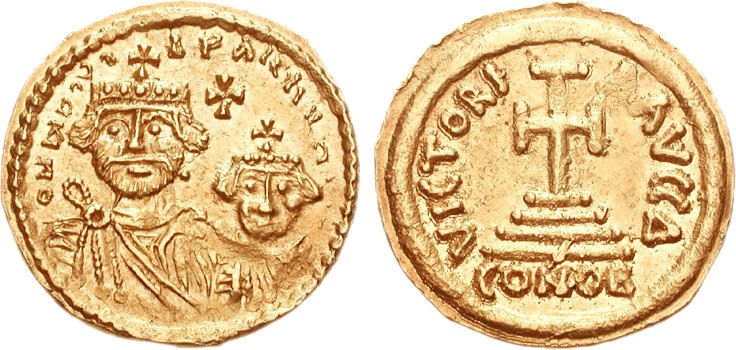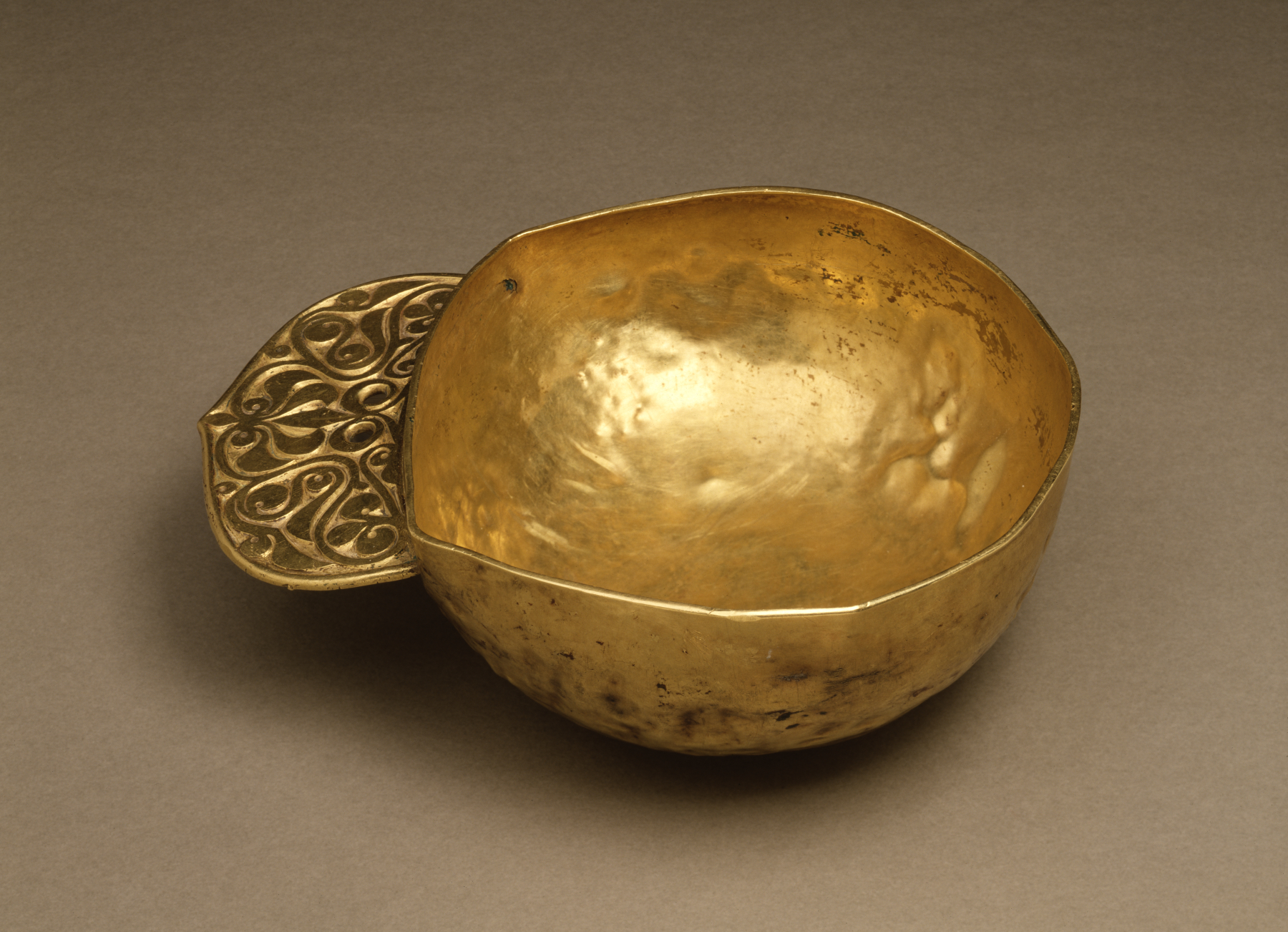|
Kubrat
Kubrat ( el, Κοβρᾶτος, Kούβρατος; bg, Кубрат ) was the ruler of the Onogur–Bulgars, credited with establishing the confederation of Old Great Bulgaria in ca. 632. His name derived from the Turkic words ''qobrat'' — "to gather", or ''qurt'', i.e. "wolf". Origin In the '' Nominalia of the Bulgarian khans'' Kubrat is mentioned as ''Kurt'' (), being a member of the Dulo clan and reigning for 60 years having succeeded Gostun of the Ermi clan. Bulgars were Turkic nomadic people, who participated in the 5th-century Hunnic confederation. Upon Attila's death, the tribes that later formed the Bulgars had retreated east into the Black Sea-Caspian Steppe. The western Bulgar tribes joined the Avar Khaganate, while the eastern Bulgars came under the Western Turkic Khaganate by the end of the 6th century. Theophanes the Confessor called him "king of the Onogundur Huns". Patriarch Nikephoros I (758–828) called Kubrat "lord of the Onuğundur" and "ruler of the O ... [...More Info...] [...Related Items...] OR: [Wikipedia] [Google] [Baidu] |
Old Great Bulgaria
Old Great Bulgaria or Great Bulgaria (Medieval Greek: Παλαιά Μεγάλη Βουλγαρία, ''Palaiá Megálē Voulgaría''), also often known by the Latin names ''Magna Bulgaria'' and ''Patria Onoguria'' (" Onogur land"), was a 7th-century nomadic empire formed by the Onogur Bulgars on the western Pontic–Caspian steppe (modern southern Ukraine and southwest Russia). Great Bulgaria was originally centered between the Dniester and lower Volga. The original capital was Phanagoria on the Taman Peninsula between the Black and Azov seas. In the mid-7th century, Great Bulgaria expanded west to include Avar territory and was centered on Poltava. During the late 7th century, however, an Avar-Slavic alliance in the west, and Khazars in the east, defeated the Bulgars, and Great Bulgaria disintegrated. Successor states are the First Bulgarian Empire and Volga Bulgaria. Origins The etymology of the ethnonym ''Bulgar'' is not completely understood; it is difficult to tra ... [...More Info...] [...Related Items...] OR: [Wikipedia] [Google] [Baidu] |
Bulgars
The Bulgars (also Bulghars, Bulgari, Bolgars, Bolghars, Bolgari, Proto-Bulgarians) were Turkic semi-nomadic warrior tribes that flourished in the Pontic–Caspian steppe and the Volga region during the 7th century. They became known as nomadic equestrians in the Volga-Ural region, but some researchers say that their ethnic roots can be traced to Central Asia. During their westward migration across the Eurasian steppe, the Bulgar tribes absorbed other tribal groups and cultural influences in a process of ethnogenesis, including Iranian, Finnic and Hunnic tribes. Modern genetic research on Central Asian Turkic people and ethnic groups related to the Bulgars points to an affiliation with Western Eurasian populations. The Bulgars spoke a Turkic language, i.e. Bulgar language of Oghuric branch. They preserved the military titles, organization and customs of Eurasian steppes, as well as pagan shamanism and belief in the sky deity Tangra. The Bulgars became semi-sedentary durin ... [...More Info...] [...Related Items...] OR: [Wikipedia] [Google] [Baidu] |
Avar Khaganate
The Pannonian Avars () were an alliance of several groups of Eurasian nomads of various origins. The peoples were also known as the Obri in chronicles of Rus, the Abaroi or Varchonitai ( el, Βαρχονίτες, Varchonítes), or Pseudo-Avars in Byzantine sources, and the Apar ( otk, 𐰯𐰺) to the Göktürks (). They established the Avar Khaganate, which spanned the Pannonian Basin and considerable areas of Central and Eastern Europe from the late 6th to the early 9th century. The name Pannonian Avars (after the area in which they settled) is used to distinguish them from the Avars of the Caucasus, a separate people with whom the Pannonian Avars might or might not have had links. Although the name ''Avar'' first appeared in the mid-5th century, the Pannonian Avars entered the historical scene in the mid-6th century, on the Pontic–Caspian steppe as a people who wished to escape the rule of the Göktürks. They are probably best known for their invasions and destruction in ... [...More Info...] [...Related Items...] OR: [Wikipedia] [Google] [Baidu] |
Dulo Clan
The Dulo clan was a ruling dynasty of the Bulgars. The origins of the Bulgars and Dulo clan are not known precisely, and there are many theories about their origin. It is generally considered that they – or at least the elite caste – were intimately related to the origin and activity of the Huns and Western Turkic Khaganate. Particularly, it is said that the Dulo descended from the rulers of Great Bulgaria, which was founded by Khan Asparuh's (681–701) father on the steppes of Ukraine. This state was a centralized monarchy from its inception, unlike previous Hunno-Turkic political entities, which were tribal confederations. The royal family and rulers of Old Great Bulgaria (632–668) and the first half of the First Bulgarian Empire (681–1018), in their prince lists ('' Nominalia of the Bulgarian khans'') claimed through Irnik, who was probably related to or was Attila's son Ernak himself, or at least of Attilid descent. During the pagan period, the succession of cla ... [...More Info...] [...Related Items...] OR: [Wikipedia] [Google] [Baidu] |
Pannonian Avars
The Pannonian Avars () were an alliance of several groups of Eurasian nomads of various origins. The peoples were also known as the Obri in chronicles of Rus, the Abaroi or Varchonitai ( el, Βαρχονίτες, Varchonítes), or Pseudo-Avars in Byzantine sources, and the Apar ( otk, 𐰯𐰺) to the Göktürks (). They established the Avar Khaganate, which spanned the Pannonian Basin and considerable areas of Central and Eastern Europe from the late 6th to the early 9th century. The name Pannonian Avars (after the area in which they settled) is used to distinguish them from the Avars of the Caucasus, a separate people with whom the Pannonian Avars might or might not have had links. Although the name ''Avar'' first appeared in the mid-5th century, the Pannonian Avars entered the historical scene in the mid-6th century, on the Pontic–Caspian steppe as a people who wished to escape the rule of the Göktürks. They are probably best known for their invasions and destruction in ... [...More Info...] [...Related Items...] OR: [Wikipedia] [Google] [Baidu] |
Organa
Organa (Alpo-Morgan) was Kubrat's maternal uncle of the Ermi clan. According to John of Nikiu, he was regent (kavkhan) over the tribe of the Onogur Bulgars from 617 to 630 in place of his nephew, Kubrat, for the time Kubrat was growing up as a hostage in the Byzantine Empire. There is information that Organa accompanied Kubrat on his initial trip to Constantinople. Some historians have identified Organa with Gostun and Western Turkic Baghatur Qaghan (莫賀咄可汗 ''Mòhèduō Kèhán''). Panos Sophoulis considered that ''Organa'' is in fact a Turkic title (''or- ḡan/qan'') rather than a proper name. Honor Organa Peak on Smith Island in Antarctica Antarctica () is Earth's southernmost and least-populated continent. Situated almost entirely south of the Antarctic Circle and surrounded by the Southern Ocean, it contains the geographic South Pole. Antarctica is the fifth-largest contine ... is named after Organa. References See also * Nominalia of the Bulgarian k ... [...More Info...] [...Related Items...] OR: [Wikipedia] [Google] [Baidu] |
Pereshchepina Treasure
The Pereshchepina Treasure (russian: Перещепинский клад, uk, Перещепинський скарб) is a major deposit of Bulgar, Sassanian, Sogdian, Turkic and Avarian objects from the Migration Period. The most valuable items are the ''sword of Kubrat'', a gift from Emperor Heraclius and the ring with the monogram of the ruler, as a "patrician", that is, as the savior of the New (Christian) Rome. The sword is valuable as an artifact № 1 of the Hermitage and for the first time leaves the borders of Russia on May 24, 2019. It is presented in Sofia by Boyko Borisov to Audrey Azoulay. The deposit was discovered in 1912 in the village of Mala Pereshchepina (20 km from Poltava, Ukraine) by a shepherd boy who stumbled over a golden vessel and fell into what is sometimes believed to be the grave of Kubrat, the founder of Great Bulgaria and father of Asparuh, the founder of the First Bulgarian Empire. The hoard, first described by Makarenko, was extrac ... [...More Info...] [...Related Items...] OR: [Wikipedia] [Google] [Baidu] |
Onogurs
The Onoğurs or Oğurs (Ὀνόγουροι, Οὔρωγοι, Οὔγωροι; Onογurs, Ογurs; "ten tribes", "tribes"), were Turkic nomadic equestrians who flourished in the Pontic–Caspian steppe and the Volga region between 5th and 7th century, and spoke the Oghuric language. Etymology The name ''Onoğur'' is widely thought to derive from ''On-Oğur'' "ten Oğurs (tribes)". Modern scholars consider Turkic terms for tribe ''oğuz'' and ''oğur'' to be derived from Turkic ''*og/uq'', meaning "kinship or being akin to". The terms initially were not the same, as ''oq/ogsiz'' meant "arrow", while ''oğul'' meant "offspring, child, son", ''oğuš/uğuš'' was "tribe, clan", and the verb ''oğša-/oqša'' meant "to be like, resemble". The ethnonym Hungarian is thought to be possibly derived, among other hypotheses, from Onogurs (> (H)ungars). Language The Onoghuric or Oghuric languages are a branch of the Turkic languages. Some scholars suggest Hunnic had strong ties with Oghu ... [...More Info...] [...Related Items...] OR: [Wikipedia] [Google] [Baidu] |
Batbayan
Batbayan ( bg, Батбаян) ruled the Khazarian Bulgars mentioned by Theophanes and Nicephorus after the Khazars defeated the Bulgars and Old Great Bulgaria disintegrated. There is a scholarly theory that he may have been the same person as Bezmer of the Nominalia of the Bulgarian khans who may have been also the first son of Kubrat. He was a member of the Dulo clan, who after Kubrat's death ruled Old Great Bulgaria, but his rule lasted only three years. Kevin Alan Brook Kevin () is the anglicized form of the Irish masculine given name (; mga, Caoimhghín ; sga, Cóemgein ; Latinized as ). It is composed of "dear; noble"; Old Irish and ("birth"; Old Irish ). The variant '' Kevan'' is anglicized from , a ... calls him Bayan.Kevin Alan Brook, The Jews of Khazaria, Edition 3, Rowman & Littlefield, 2018, , p. 15. Batbayan would have then ruled the Bulgars as a subject to the Khazar Khagan. Sources Year of birth unknown European royalty Bulgars {{Europe- ... [...More Info...] [...Related Items...] OR: [Wikipedia] [Google] [Baidu] |
Batbayan Of Bulgaria
Batbayan ( bg, Батбаян) ruled the Khazarian Bulgars mentioned by Theophanes and Nicephorus after the Khazars defeated the Bulgars and Old Great Bulgaria disintegrated. There is a scholarly theory that he may have been the same person as Bezmer of the Nominalia of the Bulgarian khans who may have been also the first son of Kubrat. He was a member of the Dulo clan, who after Kubrat's death ruled Old Great Bulgaria, but his rule lasted only three years. Kevin Alan Brook Kevin () is the anglicized form of the Irish masculine given name (; mga, Caoimhghín ; sga, Cóemgein ; Latinized as ). It is composed of "dear; noble"; Old Irish and ("birth"; Old Irish ). The variant '' Kevan'' is anglicized from , a ... calls him Bayan.Kevin Alan Brook, The Jews of Khazaria, Edition 3, Rowman & Littlefield, 2018, , p. 15. Batbayan would have then ruled the Bulgars as a subject to the Khazar Khagan. Sources Year of birth unknown European royalty Bulgars {{Europe- ... [...More Info...] [...Related Items...] OR: [Wikipedia] [Google] [Baidu] |
Gostun
Gostun was a regent over the Bulgars for 2 years. Little else is known about him. It is possible that Gostun is an alternative name of Organa, who according to some Byzantine sourcesJohn of Nikiu, 6th-century historian was a regent over the Bulgars until Kubrat's return from Constantinople and was also member of the Ermi clan. Gostun Point on Snow Island in the South Shetland Islands, Antarctica is named after Gostun. See also *List of Ukrainian rulers This is a list that encompasses and includes all reigning leaders/rulers in the history of Ukraine. This page includes the titles of the Grand Prince of Kyiv, Grand Prince of Chernigov, Grand Prince of Pereyaslavl, Grand Prince of Galicia� ... References 6th-century births 7th-century Bulgarian monarchs 7th-century deaths {{Europe-royal-stub ... [...More Info...] [...Related Items...] OR: [Wikipedia] [Google] [Baidu] |
Khan (title)
Khan ''khan/qan''; tr, han; Azerbaijani: ''xan''; Ottoman: ''han''; Old Turkic: ''kan''; Chinese: 汗 ''hán''; Goguryeo: 皆 ''key''; Buyeo: 加 ''ka''; Silla: 干 ''kan''; Gaya: 旱 ''kan''; Baekje: 瑕 ''ke''; Manchu: ; Persian: خان; Punjabi: ਖ਼ਾਨ; Hindustani: ख़ान or ख़ां (Devanagari), or (Nastaleeq); Balochi: خان; Bulgarian: хан, ''khan''; Chuvash: хун, ''hun''; Arabic: خان; bn, খান or ) () is a historic Turko-Mongol title originating among nomadic tribes in the Central and Eastern Eurasian Steppe to refer to a chief or ruler. It first appears among the Rouran and then the Göktürks as a variant of khagan (sovereign, emperor) and implied a subordinate ruler. In the Seljuk Empire, it was the highest noble title, ranking above malik (king) and emir (prince). In the Mongol Empire it signified the ruler of a horde (''ulus''), while the ruler of all the Mongols was the khagan or great khan. The title subsequently de ... [...More Info...] [...Related Items...] OR: [Wikipedia] [Google] [Baidu] |





